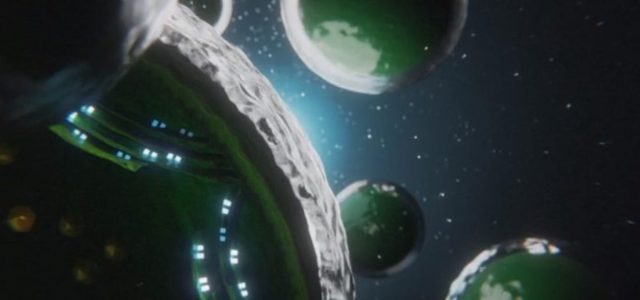


Scientists have studied photosynthesis in plants for centuries, but an international team now believes it has unlocked new secrets in nature’s great machine that could revolutionize sustainable fuels and fight climate change.
The team says it’s determined that it’s possible to extract an electrical charge at the best possible point in photosynthesis. This means harvesting the maximum amount of electrons from the process for potential use in power grids and some types of batteries. It could also improve the development of biofuels. While it’s still early days, the findings, reported in the journal Nature, could reduce greenhouse gasses in the atmosphere and provide insights to improve photovoltaic solar panels.
The key breakthrough came when researchers observed the process of photosynthesis at ultrafast timescales.
“We can take photos at different times which allow us to watch changes in the sample really, really quickly – a million billion times faster than your iPhone,” Tomi Baikie, from the University of Cambridge’s Cavendish Laboratory, told CNET.
The team used a technique called ultrafast transient absorption spectroscopy, which can be most simply understood as lighting up a sample with laser pulses and recording what happens at extremely short intervals. This makes it possible to watch electrons as they move through the entire photosynthetic process.
Previous demonstrations connected cyanobacteria, algae and other plants to electrodes to create so-called bio-photoelectrochemical cells that tap into the photosynthetic process to generate electricity.
Baikie said the researchers were surprised to discover a previously unknown pathway of energy flow at the beginning of the process that could enable extracting the charge in a more efficient way.
“We rely on plants for everything we eat and all the air that we breathe, and maybe we can also use their electrons too.”
The scientists found that the place in the cell where photosynthesis starts was “leaking” electrons. In nature, this could protect plants from the harmful parts of sunlight.
The discovery of the new, leaky pathway could also have major implications for the production of renewable biofuels, typically derived from plants or algae. Biofuels can be carbon neutral because they both take up carbon dioxide when the plants are grown and release it back into the atmosphere when burned, versus fossil fuels that release carbon that’s been stored deep in the Earth for eons. How much carbon biofuel adds or subtracts from the atmosphere depends on how the plants are grown and how the fuel is produced.
This research could be used to develop more-efficient processes for creating biofuels.
“It’s a completely new approach to biofuel production. We are gathering electrons from the most early and powerful points of photosynthesis and rerouting them there,” research coordinator Jenny Zhang, also from Cambridge, said via email.
Zhang says others have attempted to harvest electrons from an earlier point in the photosynthetic process but concluded it was impossible. She says that at first, the team was convinced it had made a mistake.
“It took a while for us to convince ourselves that we’d done it,” Zhang said in a statement.
The breakthrough essentially promises to harness more of the incredible efficiency of photosynthesis when it comes to turning sunlight into energy.
“What makes photosynthesis really special is its near 100% efficiency in converting light to electrons,” Baikie explained. “By us understanding the mechanisms of photosynthesis, we can use this knowledge to inspire us to improve existing solar cell technology.”
In addition to producing energy more efficiently, fine-tuning photosynthesis could also allow for the use of plants to better take up and store carbon dioxide, helping to fight climate change in the process.
Zhang imagines a future in which tapping into photosynthesis allows us to “farm our energy the way we farm our food” but doing so via organisms like cyanobacteria, which won’t require competing with food production.
In fact, she said, the new insights gleaned from this research could give crops a boost by making them more tolerant to intense sunlight.
“In the long run, if we can generate renewable energy and fuels from self-generating, self-recycling, living materials, it would be one of the greenest options one can imagine going forwards for sustainability.”
